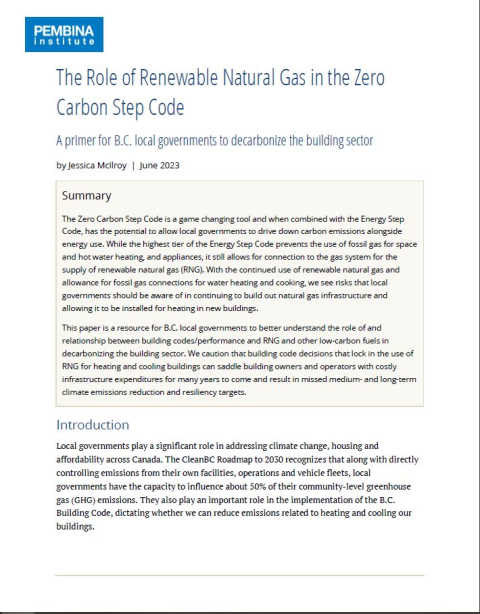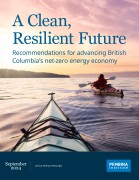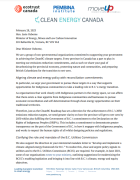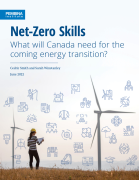The Zero Carbon Step Code is a game changing tool and when combined with the Energy Step Code, has the potential to allow local governments to drive down carbon emissions alongside energy use. While the highest tier of the Zero Carbon Step Code prevents the use of fossil gas for space and hot water heating, and appliances, it still allows for connection to the gas system for the supply of renewable natural gas (RNG). With the continued use of renewable natural gas and allowance for fossil gas connections for water heating and cooking, we see risks that local governments should be aware of in continuing to build out natural gas infrastructure and allowing it to be installed for heating in new buildings.
This paper is a resource for B.C. local governments to better understand the role of and relationship between building codes/performance and RNG and other low-carbon fuels in decarbonizing the building sector. We caution that building code decisions that lock in the use of RNG for heating and cooling buildings can saddle building owners and operators with costly infrastructure expenditures for many years to come and result in missed medium- and long-term climate emissions reduction and resiliency targets.







